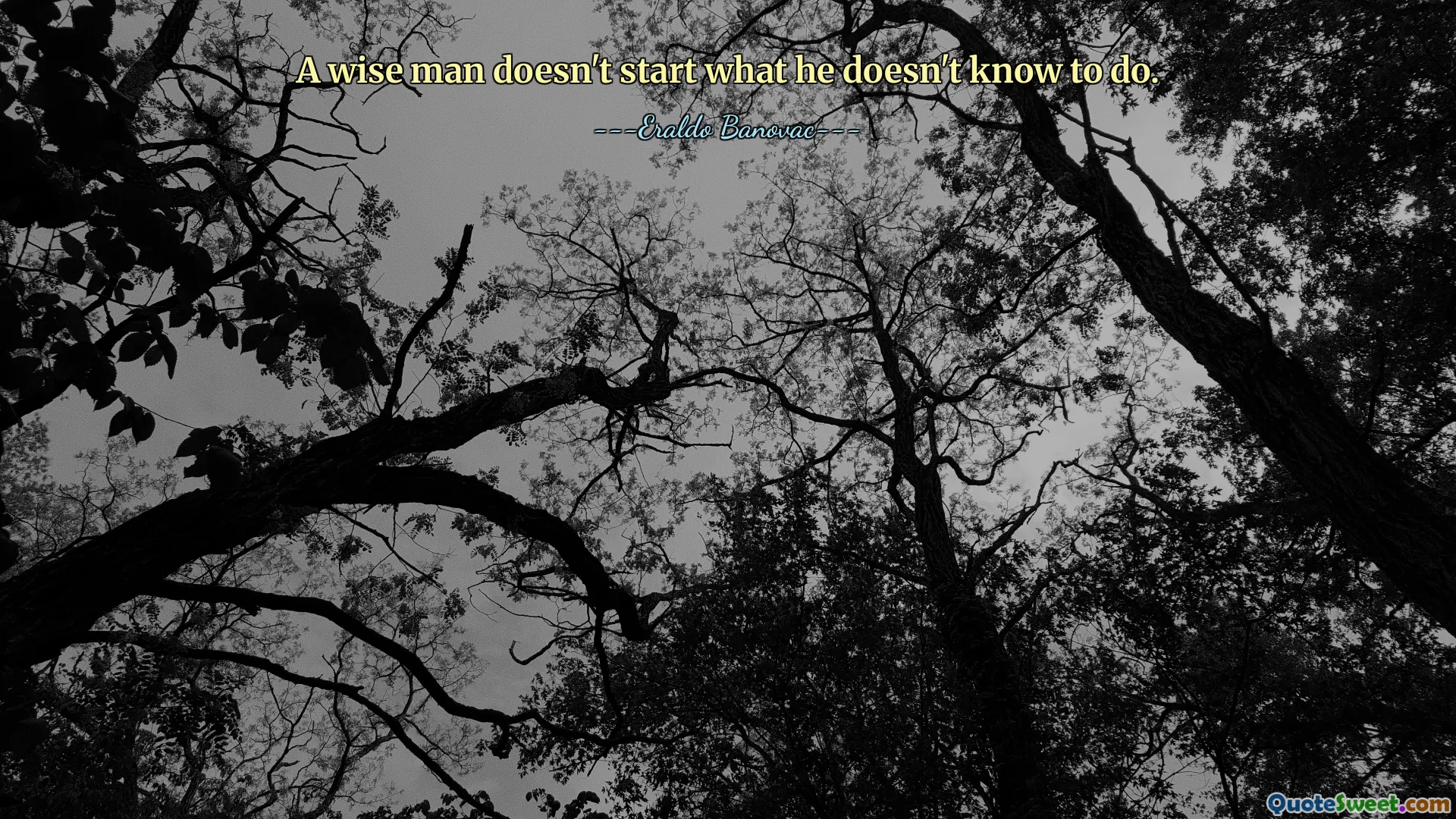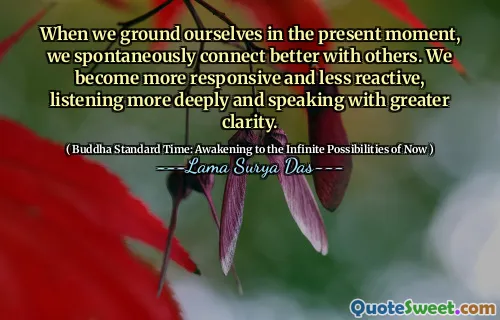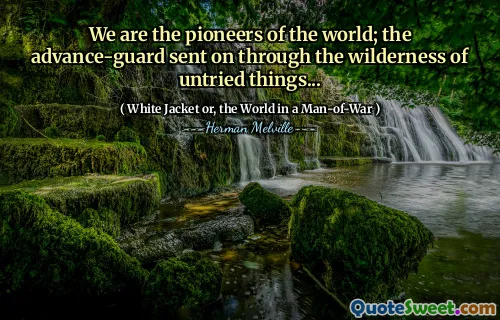
A wise man doesn't start what he doesn't know to do.
This quote succinctly captures the essence of wisdom as it relates to action and knowledge. It invites us to reflect deeply on the value of awareness and preparation before embarking on any endeavor. At its core, it advises prudence — a hallmark of wisdom — suggesting that one should not rush into activities or commitments without a firm understanding of the required skills or knowledge. This resonates with the idea that ignorance coupled with impulsive action can lead to failure or unnecessary complications. Additionally, the quote highlights the importance of self-awareness. Knowing one's limits and capabilities is crucial, and a wise person recognizes when they lack the necessary knowledge and therefore exercises caution. However, this maxim also implicitly challenges us to differentiate between hesitation born out of caution and inaction born out of fear. There is a delicate balance between not starting something unfamiliar without preparation and maintaining the courage to learn through experience. In practical terms, this wisdom encourages continual learning and preparation — one should seek knowledge and competence before initiating action. It also touches upon efficiency: engaging only in tasks one is equipped for prevents wasted effort and potential harm. Overall, this quote serves as a gentle reminder that wisdom is not simply about what we do, but when and how we choose to act. It underscores the dignity in mastering one's craft or domain before taking steps into action, promoting thoughtful deliberation and competence as virtues that lead to successful and meaningful outcomes.
---Eraldo Banovac---







